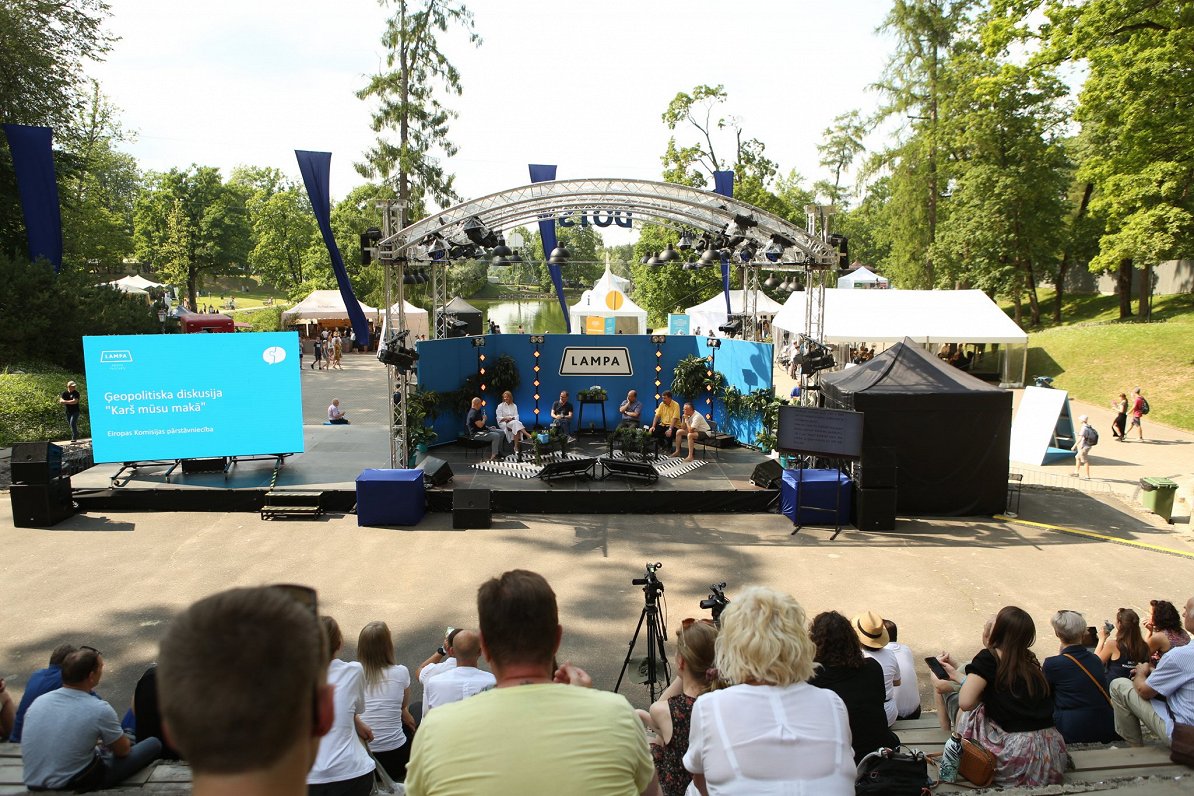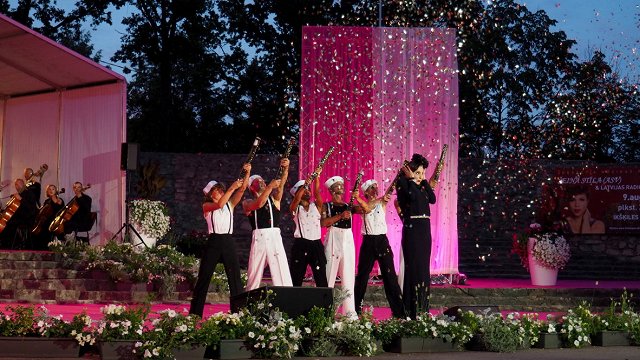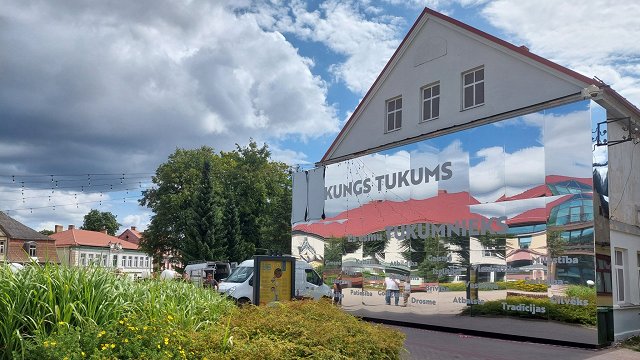LSM's English-language portal is delighted to be able to bring you several livestreamed discussions from the event in English. There are also dozens more discussions available to view in Latvian on the LSM Latvian-language service.
Here is a run-down of which livestreams will be available here on LSM English. For full detals of all the events at LAMPA, see the festival's official website: https://festivalslampa.lv/lv
June 9th
13:00-14:00: Panel discussion "Urban agriculture: The role of education and science"
What do cities and agriculture have in common? In recent years, urban farming has become increasingly popular, offering not only fresh food, but also other benefits, such as noise-absorbing green roofs or vertical gardens, which can offset the unpleasant aspects of city life.
This discussion is for professionals who work with urban development and want to learn about the future of urban agriculture. It will discuss the scope and future challenges of urban agriculture, as well as the new skills that will be needed for its development.
14:00-15:00: Discussion "Nuclear Weapons Divide: Towards a Safer Future"
The discussion will bring together industry experts from Latvia and Germany to address the complex issue of nuclear weapons and their possible impact on our future. The discussion will cover the development of nuclear weapons, the current state of proliferation, disarmament efforts and the role of international institutions in controlling the spread of these destructive weapons. Join us for a thought-provoking exchange of ideas, a chance to challenge perspectives and be part of the solution to creating a safer world free from the threat of weapons of mass destruction.
15:00-16:30: Discussion "Towards emission-free centralized heat supply in Latvia"
Heat supply companies in Latvia are switching from natural gas to biomass as fuel in many places. However, could biomass in Latvia be considered only as a transitional fuel? And maybe it is even possible to bypass biomass as a stage of development towards emission-free centralized heat supply altogether?
15:30-16:30: Discussion "The future of creative industries and the stories of European candidate cities of culture"
In 2027, the European capital of culture will be Liepāja. The title of European Capital of Culture has been awarded annually since 1985. It is awarded annually to no more than one city in each of the two member states of the European Union. What has this path been like? What's next? And what is the place of creative industries in this process and in urban development?
17:00-18:00: Discussion "Soldiers and Guns Will Not Be Enough: Countering Non-Military Threats for Common Security"
Russia's invasion of Ukraine shattered the illusions of those who were skeptical of Russia's intentions. After February 24, 2022, we united to help Ukraine defend its sovereignty. We increased defense spending, deployed new military units, emphasized the protection of critical infrastructure and improved our cyber defenses, in line with the alliance's commitment to protect every inch of NATO territory.
However, the threat to our alliance is wider than it first appears. Issues such as rampant corruption and money laundering, disinformation and the declining viability of independent media, and institutions that fail to protect and include all our citizens serve as long-term bulwarks for those who seek to undermine and destabilize our alliance. How should alliance members balance resilience against these long-term challenges and confront the greatest threats to transatlantic security of the moment?
18:00-19:00: Discussion "Diplomacy and foreign policy in times of crisis"
Discussion with the participation of the German Minister of State for Europe and Climate Affairs, Anna Lührmann, about the importance of diplomacy in the context of current events.
What is the role of diplomacy at a time when a bloody war is raging right next door, which seems to leave no room for the art of negotiation? To what extent has the main focus of our diplomacy shifted to making a significant contribution to Western resistance to the Russian aggressor and support for Ukraine?
June 10th
14:00-15:00: Panel discussion "What are the future perspectives of Nordic and Baltic cooperation after 2022?"
The events of 2022 have changed the context of regional cooperation in many ways, forcing us to face a reality that would have been unimaginable before. What is the future of long-term regional cooperation between the Nordic and Baltic countries?
Until relatively recently, the governments of the Nordic countries agreed on a new long-term vision, Nordic Vision 2030, with the aim of turning the Nordic region into the most sustainable and mutually integrated region in the world. How will current events in Europe affect the viability of this vision?
16:00-17:00: Panel discussion "How to promote democratic participation?"
Opinions differ about democracy and its sustainability in modern society. Some worry that democracy is threatened by technological change, populism and a growing distrust of democratic processes. Others argue that, on the contrary, the demand for democratic rights is only gaining strength in many parts of the world, and that democracy is strong enough to resist authoritarian tendencies. However, most people would likely agree that the viability of a democracy is based on constant development and keeping up with the times.
17:00-18:00: Discussion "Democracy and its enemies: how not to lose the battle"
In the last decade, as algorithms increasingly dictate our communications, the alarm bells have abounded, from toxic public discourse and political violence to malicious information operations and populism as democratic totalitarianism.
On the other hand, Russia's descent into tyranny and the invasion of Ukraine have completely changed the security situation in Europe. Our democracies have become even more subject to external manipulation, societies - less open, and governments are bent on restricting civil liberties in the name of national security.
What are the threats to our democracy that we should watch out for before it's too late? We will talk about it together with opinion leaders and thinkers from Latvia and other European countries.



























